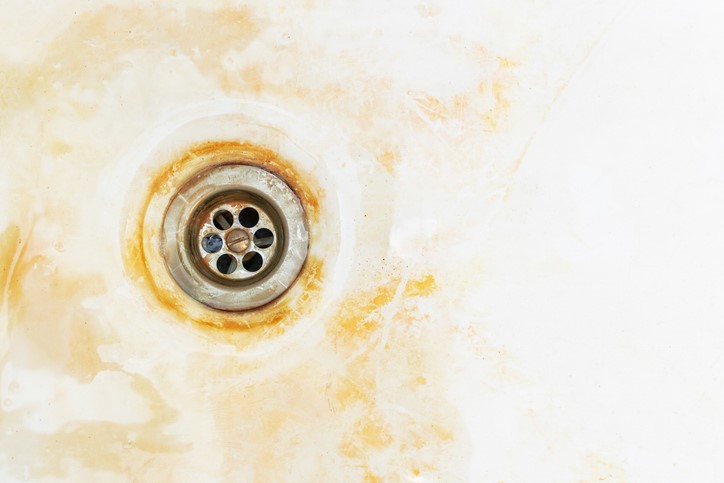Manganese is a naturally occurring element found in the Earth’s crust, and it plays a vital role in various biological processes. While it is essential in small amounts for human health—contributing to bone formation, metabolism, and antioxidant activity—excessive levels in drinking water can pose significant challenges. This blog post explores what manganese is, why it’s present in our water supplies, where it is most prevalent, and the potential issues it can cause in both health and household plumbing systems.
What is Manganese?
Manganese (Mn) is a transition metal, often found in minerals in combination with iron. It is an essential nutrient, involved in various enzymatic processes, but excessive exposure can lead to toxicity. In drinking water, manganese typically appears as a dissolved ion, either in its oxidized (Mn4+) or reduced (Mn2+) form, depending on the conditions in the water supply.
Why is Manganese Present in Water?
Manganese is commonly found in groundwater, surface water, and soil, primarily due to natural weathering processes. Various factors contribute to its presence in water:
- Geological Sources: Areas with high manganese concentrations in the soil and rock formations often lead to elevated levels in local water supplies.
- Agricultural Runoff: Fertilizers and pesticides can contain manganese, which can leach into water systems through runoff.
- Industrial Processes: Certain industries may contribute manganese to water sources through waste discharges.
- Corrosion of Plumbing: In some cases, manganese can leach from plumbing materials themselves, particularly if the water is acidic or low in mineral content.
Prevalence of Manganese in Water
Manganese levels in drinking water can vary widely based on geographic location. Regions with abundant manganese-rich geological formations are more likely to experience elevated concentrations. According to the Environmental Protection Agency (EPA), the maximum contaminant level for manganese in drinking water is set at 0.05 mg/L to safeguard public health, but many municipalities struggle to meet these guidelines.
Health Implications of Manganese in Drinking Water
While manganese is necessary for health in trace amounts, consuming it in elevated levels can lead to various health issues. Long-term exposure, especially in children, has been linked to neurological problems, including cognitive deficits and motor skills impairment. Studies have also indicated potential connections between high manganese levels and conditions such as hyperactivity and attention disorders.
Issues in Plumbing and Water-Using Appliances
- Staining: One of the most visible issues caused by manganese in water is the staining it leaves on fixtures, laundry, and even dishes. These unsightly stains can be challenging to remove and can lead to aesthetic concerns in homes.
- Clogged Pipes: Manganese can precipitate out of water, forming sediment that can clog pipes and reduce water flow. This can lead to costly repairs and maintenance.
- Impact on Water Heaters: High concentrations of manganese can accumulate in water heaters, leading to reduced efficiency, increased energy consumption, and potential premature failure.
- Odor and Taste: Manganese can impart a metallic taste and odor to water, making it less palatable and causing users to seek alternative sources.
Addressing Manganese Contamination
If you suspect high levels of manganese in your drinking water, it’s essential to conduct a water test. Solutions may include:
- Filtration Systems: Using reverse osmosis or specific water treatment systems can help reduce manganese levels.
- Water Softeners: Some water softening systems can remove manganese, depending on their configuration.
- Regular Maintenance: Routine checks on plumbing systems can help catch and mitigate issues related to sediment buildup.
Conclusion
Manganese is an essential nutrient, but its presence in drinking water at elevated levels can lead to significant health risks and plumbing issues. Understanding the sources, implications, and solutions for manganese in water is crucial for ensuring both personal health and the longevity of household plumbing systems. Regular water testing and appropriate treatment methods can help safeguard your home and health from the adverse effects of manganese contamination.
If you’re interested in clean water in your home – schedule a free, no-obligation in-home water analysis with an Artisanal Water local expert.
Call (704) 315-6344 or fill out our contact form.
